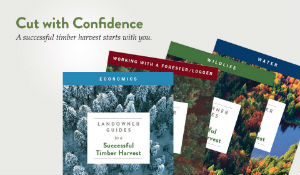 Consulting foresters have general knowledge of natural resource elements with a particular interest in trees and forests. You may need a consulting forester to help you with your woodland. They can help you apply for and write plans for Vermont's Forestry Use Value Appraisal Program (Current Use). They have the skills and tools to inventory your forest, make maps to standards, prepare timber sale contracts, mark trees, oversee logging and prepare the paperwork for cost share and incentive programs for federal and state assistance for management activities. Some are certified to use herbicides to control invasive plants and a few can handle real estate transactions or surveying work.
Consulting foresters have general knowledge of natural resource elements with a particular interest in trees and forests. You may need a consulting forester to help you with your woodland. They can help you apply for and write plans for Vermont's Forestry Use Value Appraisal Program (Current Use). They have the skills and tools to inventory your forest, make maps to standards, prepare timber sale contracts, mark trees, oversee logging and prepare the paperwork for cost share and incentive programs for federal and state assistance for management activities. Some are certified to use herbicides to control invasive plants and a few can handle real estate transactions or surveying work.
Your county forester will have a list of consulting foresters who work in your area. They will not make recommendations, but may direct you to landowners who will. Many foresters in Vermont belong to the Society of American Foresters, New England Chapter. You can check their website for information as well. The Vermont Woodlands Association does have a certification program and can share their listing of Consulting Foresters of Vermont with you.
For the Forest Landowner Mailing List and more information about your woods.
It usually makes sense to locate a forester who can work with your property over time--certainly through the life of any plan they help prepare. So, be comfortable with your choice of forester. Take the time to research those who work in your community and the surrounding lands. Talk to other landowners, as well as your County Forester, to find someone who shares your philosophy of the land. Interview them and ask to see copies of plans and maps they have prepared. Find out their business practices for contracts, billings and schedules. Tell them if you want to write part of the plan or harvest logs or firewood yourself. Conversely, if you live away from the property, can the forester handle other land management activities for you?
Over time, working with a consulting forester often results in more income for landowners because they understand the wood markets and have the experience with loggers and with state rules and programs.

